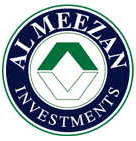LONDON, 8 January 2007 — Strong recovery in the financial services sector in general usually means a concomitant hiring of more banking staff because of the increased business generated.
The latest joint Confederation of British Industry (CBI) and PriceWaterhouseCoopers survey launched in London today concludes that financial services firms have recovered from a sharp summer dip and enjoyed a strong growth in business volumes in the last quarter of 2006, “accompanied by a surprise record rate of employment growth.”
The survey forecasts financial services sector profitability to grow in the first quarter of 2007 and beyond, thanks to stronger projected income generation, and as a result, envisages a “further but more modest increase in employment.”
However, recruitment bosses in London believe that this growth in profitability may not be as good as in 2006. As such, hiring of banking staff will be more selective in American banks in particular, such as Lehman Brothers, Goldman Sachs, Bear Stearns and Merrill Lynch, because of a greater concentration on debt and derivative business. However, hiring is focused more on traders, although, not as aggressively as last year.
While recruitment in the conventional banking sector is not difficult because of a well-oiled assembly line of human resource capital churned out by universities and actuarial, accounting, legal and other such professional bodies, and the existence of highly-efficient head-hunting firms, in the Islamic banking sector the story is almost totally the reverse. A study in December 2006 by US consultants AT Kearney warned that the strong growth in the global Islamic banking and finance sector means that the current shortage of qualified personnel working in the sector will be exacerbated. The study concluded that with the Islamic banking and finance sector estimated to grow between 15 percent to 20 percent a year in the Gulf Cooperation Council (GCC) region, some 30,000 new jobs in the sector will have to be filled in the region alone within the next decade.
The growth of Islamic banking in the UAE is on a sharp upward curve.
With three new Islamic banks being launched in the UAE — the AED3.6 billion capital Al-Noor Islamic Bank, Injazat Bank — an investment bank subsidiary of Gulf Finance House and the conversion of Dubai Bank into an Islamic bank — bring the total number of dedicated Islamic banks in the UAE to six.
Bankers in Dubai stressed that there is a big actual and latent demand for Islamic banking products and services in the UAE and the rest of the GCC countries. This in addition to the Islamic banking activities of conventional banks and investment companies.
Growth figures and demand dynamics of course vary from country to country and even from institution to institution. Some banks, including Arcapita Bank in Bahrain, reported a staggering 30 percent increase in business and balance sheet.
With oil prices continuing to hold and liquidity at record levels, demand for basic and more sophisticated investment portfolios is inevitably increasing. The good news for the Islamic finance sector is that an increasing flow of this liquidity is finding a home in the Shariah-compliant financial services sector. However, this sharp growth has not been met with developing the required human capital base. That is why there is a huge turnover of staff at Islamic banks. Staff are still largely recruited from the conventional sector. This is bound to undermine the stated vision of some Islamic financial institutions to shift the focus from Shariah-compliant products and services to Shariah-based ones.
Many so-called Islamic bankers or those working in the sector still have a psychological barrier in overcoming thinking in a non-riba (non-interest) paradigm, because riba is the basis and ethos of conventional banking. That is why they opt for the easiest solution — trying to “Islamize” conventional products.
The more important problem is that the flow of the new generation of Islamic bankers with a proper training in Fiqh Al-Muamalat (Islamic law relating to financial transactions) is at best very limited. Universities in Muslim countries have neglected in general, courses and expertise in economics, accountancy, finance and banking, especially based on Islamic principles. Very often, the standard of education is very ordinary and too narrow, which means graduates are unemployable because they lack the necessary wider education and skills.
Take education in Shariah studies. Economics, finance, financial and commercial law once again are studied in passing rather than specializations. A question that is often asked is “Why do so few Shariah scholars end up as bankers, when so many conventional lawyers do become bankers?”
Of course there are notable exceptions such as the International Islamic University in Malaysia and one or two others. But these are too few and far between. The Islamic finance sector has too conveniently relied on the conventional sector to staff it rather than investing in the long-term development of their human capital.
There are some signs that things are starting to change. The Central Bank of Bahrain last year set up a fund to train and educate those interested in Islamic banking. Malaysia once again has had a headstart. Bank Islam Malaysia, the flagship Islamic bank of the country, may have had its problems in 2006, but since its inception in 1983, it has acquired the enviable sobriquet of being the human resources hothouse of Malaysian Islamic banking. Many of the current young generation of Islamic bankers inevitably would have started out at Bank Islam. However, with the establishment of the Financial Sector Master Plan and the Malaysia International Islamic Financial Sector (MIFC), the Badawi government is investing heavily in developing Islamic finance human capital. The Malaysian government aims to make the country the “Center of Excellence” in Islamic finance education, training, consultancy and research.
Bank Negara Malaysia, the central bank, has established the RM500 million International Center for Education in Islamic Finance aimed at promoting human capital development for the global Islamic finance industry, developing superior talents and best practice for the sector, supplying top researchers and educators for the sector, and offering internationally-recognized professional certification and post-graduate programs in Islamic finance education. These initiatives are unparalleled in the Islamic and emerging markets.
Mushtaq Parker |








